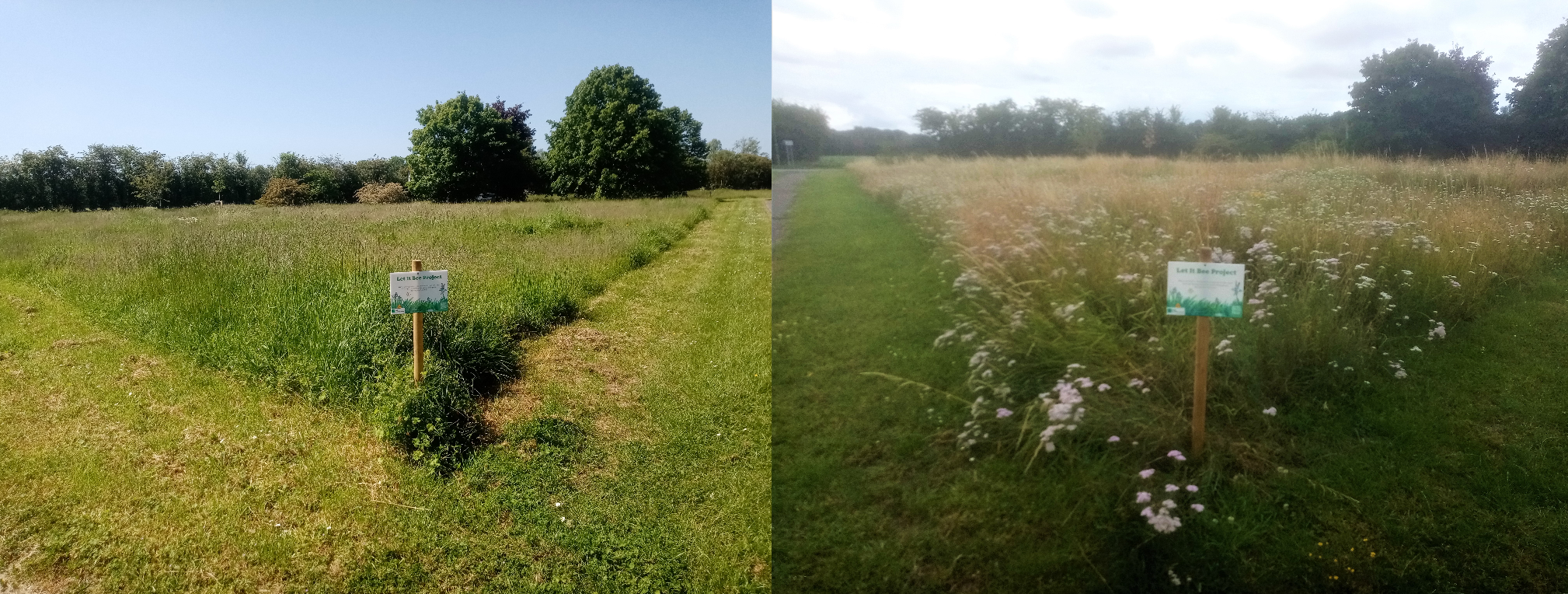
How we’re ‘Letting It Bee’ for Love Parks Week
As Keep Britain Tidy’s national Love Parks Week starts on 28 July, South Oxfordshire and Vale of White Horse district councils are sharing with residents the latest updates on their work to increase biodiversity in their parks and open spaces.
What we’ve done
In March at the start of the growing season the councils’ parks team launched their new nature recovery project called ‘Let It Bee’ which had the main aim of increasing biodiversity on council land such as in parks and open spaces.
By not mowing during the growing season (March to September) at 17 specific sites, the councils have been able let nature take its own course to make their parks and open spaces more bird, bee and butterfly friendly.
The benefits of mowing less are promoted by a range of organisations including the conservation charity Plantlife, the Royal Horticultural Society (RHS) and the Royal Society for the Protection of Birds (RSPB).
Across these sites the council parks team has been pleased to report an increase in the abundance of wildflowers and plants including bee orchids, cornflowers, poppies, common knapweed, yarrow, red clover, yellow rattle and ox eye daisies. As these have come into bloom, they have provided important shelter and food for pollinators including bees and butterflies.
Where we’ve done it
The councils have chosen 17 locations as Let It Bee sites which do not impact on pedestrians or sightlines for drivers. These sites – on land owned by the district councils – are also near shorter grass areas and pathways for people wishing to exercise, play or relax.
Cllr Freddie Van Mierlo, South Oxfordshire District Council Cabinet Member for Climate Change and Nature Recovery said: “We’d like to hear from communities and individuals across the districts about how they might have enjoyed our Let It Bee sites and /or have changed their gardening habits this summer by mowing less to encourage biodiversity. “We recognise our parks have lots of different uses including allowing people to get out and about to improve wellbeing and enjoy nature and we’ve managed the sites so all this can still happen.”
“We also know that many town and parish councils are successfully taking part in similar initiatives, as is the County Council. Parish and town councils looking for advice on where to start are also encouraged to reach out to the district council.”
Cllr Bethia Thomas, Leader of Vale of White Horse District Council and lead for climate and biodiversity said: “We know that some people think this is about the council saving money but it isn’t really the case as we’re still mowing near the Let It Bee areas so people can continue to enjoy taking a walk, playing games or having picnics. We also have to hire specialist equipment at the end of the season to cut the longer grasses.
“So far, we’ve been pleased with the progress of this trial, and we’ve had positive feedback from residents. We will continue to monitor the sites to see how nature has responded to being left to grow. We would also like to hear from more people about what they’ve seen at the sites or any ideas for the project.”
If you’ve got any comments or photos of the sites please send them to parks@southandvale.gov.uk
The list of sites below
South Oxfordshire District Council
Let it Bee sites
- Berinsfield – Fane Drive
- Berinsfield – Green Furlong
- Berinsfield – Kennet Close
- Didcot – Fleet Meadow
- Didcot – Mowbray Fields
- Didcot – Ladygrove
- Wallingford – Radnor Road
- Woodcote – Wittenham Close
Vale of White Horse District Council
Let it Bee sites
- Abingdon – Abbey Meadow
- Abingdon – Fitzharris Estate
- Abingdon – Oxford Road
- Abingdon – Rye Farm
- Abingdon – Tilsley Park
- Abingdon – White Horse Leisure Centre
- Faringdon – Marlborough Gardens
- Wantage – Mably Way
- Wantage – Manor Road
Picture shows comparison of Kennet Close Berinsfield Let It Bee site from May to July

